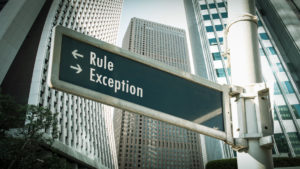By Rose O. Sherman, EdD, RN, NEA-BC, FAAN
The acute emergency situations surrounding COVID-19 have led to changes and deviations in nursing practice. A good example, albeit not the only one, is the use of PPE. Many health systems have moved from past “best practices” in the use of protective equipment to “good enough” to manage the situation given the shortages. Individual nurses have found that their routine practice has been disrupted from how they dress to whether they enter a room to do certain procedures and whether they take breaks. They no longer find themselves interacting face to face with families. Some nurses have moved out to their homes to protect their families. The level of adaptation has been very fatiguing but has become routine.
This week, many of the nation’s governor’s are working on transitional plans to reopen their states. Although this is not top of mind today for nurse leaders, at some point they will be reopening their health systems to return to more normal functioning. But turning back the clock especially after weeks of deviation is not easy.
This dilemma led me to think about an experience that I had many years ago as a young nurse working in a VA Medical. One of my patients unexpectedly arrested and a code blue was called. The cardiac arrest team arrived. The anesthesia resident struggled to intubate the patient. We were losing time. What happened next was astonishing. The critical care nurse on the team grabbed the intubation tube from the anesthesia resident and smoothly intubated the patient. All of us watched in shock but also with admiration. The patient was transported to the ICU and later recovered. What remained was the dilemma of this critical nurse who went outside his scope of practice to intubate and ultimately saved the veteran.
I was interviewed as part of the investigation and later came to know this nurse well. His background was that he had returned from Vietnam just 2 years earlier where he had been a field nurse with the Army often going on patrol missions. During a time of war, it was all hands on deck. He had intubated hundreds of patients. Returning to civilian nursing had been a difficult transition. His wartime experience had changed his thinking about many things. His response during the code was spontaneous. He knew he could do it so instinctively he took action.
Those were simpler times in many ways. There was a verbal reprimand but no other disciplinary action. The incident was not reported to the State Board of Nursing. Our Chief Nurse, herself a military veteran, told him that just because you can do something does not mean you should. Circumstances in civilian nursing were different.
Experts on the formation of habits like Charles Duhigg and James Clear tell us that new habit formation can happen in a relatively short period of time. Our work practices in many ways are a series of habits that become normalized. During COVID-19, we have normalized some practices that would have been considered deviant or strange only a few short months ago.
Like governors reopening their states, nurse leaders will need to think through how to reopen operations in their hospitals after COVID-19. Some deviance has been normalized and this needs to be acknowledged and discussed.
Read Rose Sherman’s new book – The Nurse Leader Coach: Become the Boss No One Wants to Leave
© emergingrnleader.com 2020



 LinkedIn
LinkedIn Instagram
Instagram